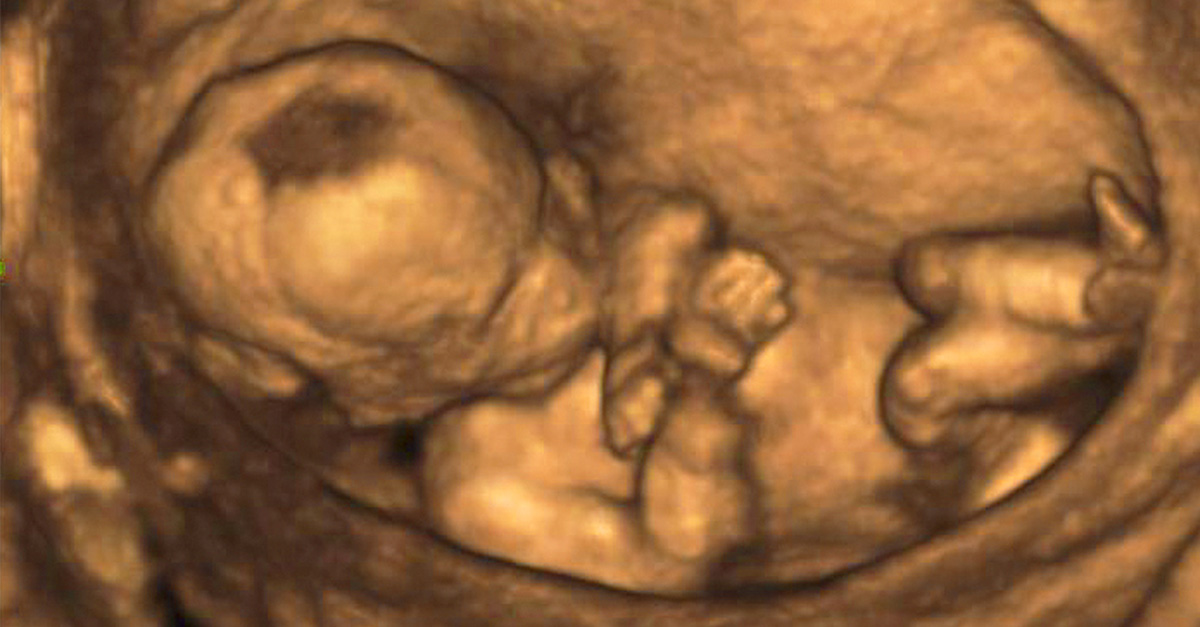


Get a free copy of Parental Rights & Education when you subscribe to our newsletter!

A number of states weighed in this week with pro-life legislation that is being celebrated by pro-life groups. These new laws not only place new limits on abortion and ban abortion pills, but they also increase help for new mothers and their infants and recognize the personhood of unborn babies. The legislation includes the following:
Last Friday, Gov. Mark Gordon, R, signed a new law banning abortion pills. SF 109 makes it illegal to “prescribe, dispense, distribute, sell or use any drug for the purpose of procuring or performing an abortion.”
Anyone who violates the law could face a fine of up to $9,000 or up to six months in jail. The legislation says that the woman who purchases or takes an abortion pill will not be criminally prosecuted.
SF 109 makes Wyoming the first state in the country to ban abortion pills.
The law does not include morning-after pills, and it provides exemptions when the life or health of a woman is in imminent peril or in order to care for a natural or spontaneous miscarriage.
Earlier this month, Gordon also signed a law extending Medicaid for mothers and their babies. House Bill 4 expands postpartum Medicaid coverage from 60 days to one year after a mother’s baby is born. Those covered will have access to services critical to mothers and their infants.
“It was a long path, but nothing worth doing is easy. And this is certainly worth doing,” Gordon said.
He added, “The importance of those first few years in making sure that our children get off to a good start, and the mothers have a great opportunity to help them get off to that first start, pays benefits back.”
The law does not increase who is eligible for Medicaid, only the length of time.
Likely to make the biggest difference is the third of Wyoming’s pro-life bills that became law this month.
The Life is a Human Right Act prohibits abortion except in the case of the life of the mother, sexual assault or incest, or lethal fetal abnormality. Wyoming already had a ban on abortion, but it has been blocked in court.
The Life is a Human Right Act takes on challenges to the state’s ability to place limitations on abortion. The act states, “All members of the human race are created equal and are endowed by their creator with certain unalienable rights, the foremost of which is the right to life.”
Of abortion, the law includes this statement: “Abortion as defined in this act is not health care. Instead of being health care, abortion is the intentional termination of the life of an unborn baby. It is within the authority of the state of Wyoming to determine reasonable and necessary restrictions upon abortion, including its prohibition.”
The law states that it does not prohibit care for an intrauterine fetal demise or ectopic pregnancy.
Adam Schwend, western regional director for SBA Pro-Life America, remarked,
“We thank Gov. Gordon for signing SF 109 to prohibit dangerous abortion drugs that can cause hemorrhaging, the need for surgery and even death. According to Medicaid data, the rate of chemical abortion-related ER visits have increased 500% since mifepristone was approved. Wyoming’s new law will limit the abortion industry’s ability to jeopardize the health and safety of women and girls. The new chemical abortion law, along with the Human Life Protection Act and extending postpartum Medicaid coverage, make Wyoming one of the most pro-life states in the country.”
Gov. Tate Reeves, R, signed legislation expanding postpartum Medicaid coverage. The law will give mothers a full year of coverage. Medicaid pays for about 60 percent of births in Mississippi.
Reeves said, “I believe continuing to offer care for new moms for up to 12 months after the birth of their baby is the right thing to do. This is one more thing we can do to tip the scales in favor of life.”
With the passage this week of HB 467, all abortion clinics in Utah will be closed by year’s end. The law stops the Department of Health and Human Services from renewing or issuing any licenses for abortion clinics.
Abortions are currently allowed in Utah up to 18 weeks’ gestation, but beginning in 2024, nearly all abortions must be performed in a hospital or a medical clinic that meets very stringent certification standards and requirements.
The law, which was signed by Gov. Spencer Cox, R, is stricter than a 2020 trigger law that was recently challenged and blocked in court. The new law adds additional restrictions and clears up confusion regarding the state’s current 18-week ban. While it provides exceptions to the 18-week cutoff for the life of the mother and mothers under the age of 14, it bans abortions after 18 weeks in the case of incest and rape. In addition, it provides a fetal abnormality exception (which does not include children with Down syndrome or other non-fatal conditions), but also requires doctors to tell women facing that situation about perinatal hospice and palliative care options for their child.
Groups that oppose abortion are praising the law. Pro-Life Utah, which is hoping the state will pass additional pro-life measures, including the appropriation of state funding for pregnancy resource centers, said,
“We are very thankful to the governor, the courageous sponsors of this bill, and our pro-life state legislators. As states across our country move to define themselves in a post Roe v Wade world, we are so grateful to live in a state that predominantly recognizes the rights of unborn children and works to promote a culture of life for all of its citizens.”
Pro-abortion groups claim the law is an end-run around the courts to limit abortion.
Gov. Sarah Huckabee Sanders, R, signed a law that will create a memorial to the babies aborted from the ruling in Roe v. Wade to its fall in Dobbs v. Jackson. The law says that at least 236,243 elective abortions were performed in Arkansas over the nearly 50-year span. The memorial will be dedicated “to the lives lost from 1973 to 2022 due to the decisions of the United States Supreme Court, and as a constant reminder of our duty to protect the life of every innocent human person, no matter how young or old, or how helpless and vulnerable that person may be.”
The Secretary of State will determine a position on the Capitol grounds for the monument, and the Capitol Arts and Grounds Commission will oversee the choice of artist and design with input from pro-life groups. The law authorizes a fund for the construction and upkeep of the memorial, which will come from gifts, grants, and donations.
Republican Rep. Mary Bentley, who sponsored the legislation, said the memorial is to “remember those children we were not able to protect and we will not be able to forget.”

Now that Roe v. Wade is overturned, pro-lifers are tasked with finding more and new ways to advance the cause of life. That means passing bans on abortion, instead of limiting abortion to 24 weeks. That means banning abortion pills, which harm the women who take them and kill the baby they’re carrying. That means seeking to help mothers and babies who may be struggling and need extra support. It also means looking back at the lives that were taken and changing the conversation around abortion so that everyone knows that abortion isn’t the removal of an inhuman clump of cells, but a person.
The Bible tells the world over and over that a fetus in the womb is a person (Galatians 1:15) and that God knows the person and has already made plans for them before they are even born. It also tells us that God is forming that person in the womb (Psalm 139:13-16). To kill a baby in the womb is to murder a human being, a human being that God is carefully forming for a reason.
It is our job to make sure that we guard the innocent lives of such babies and create a society in which women do not seek to kill their children but instead embrace them as a gift from God.
Ready to dive deeper into the intersection of faith and policy? Head over to our Theology of Politics series page where we’ve published several long-form pieces that will help Christians navigate where their faith should direct them on political issues.
